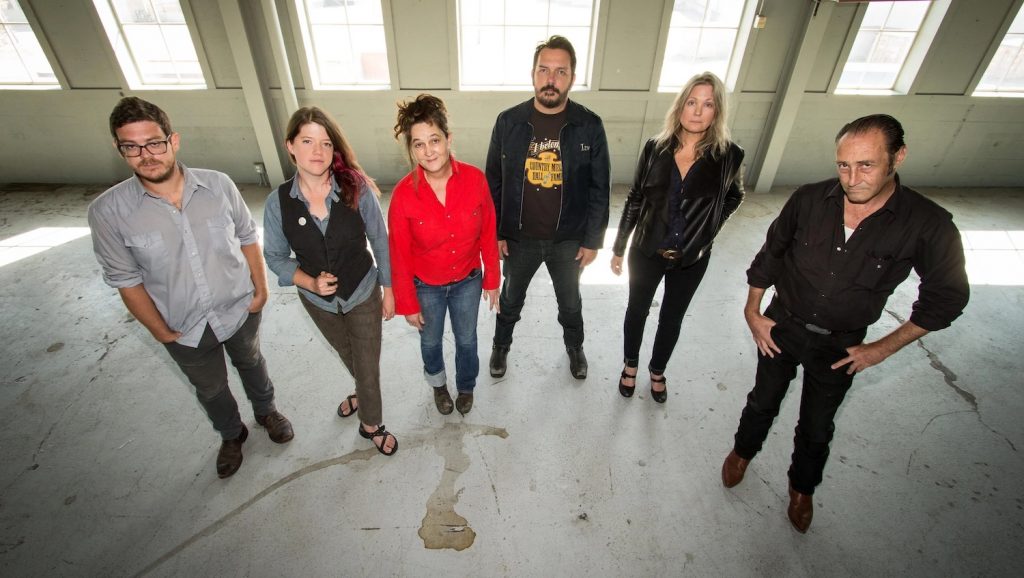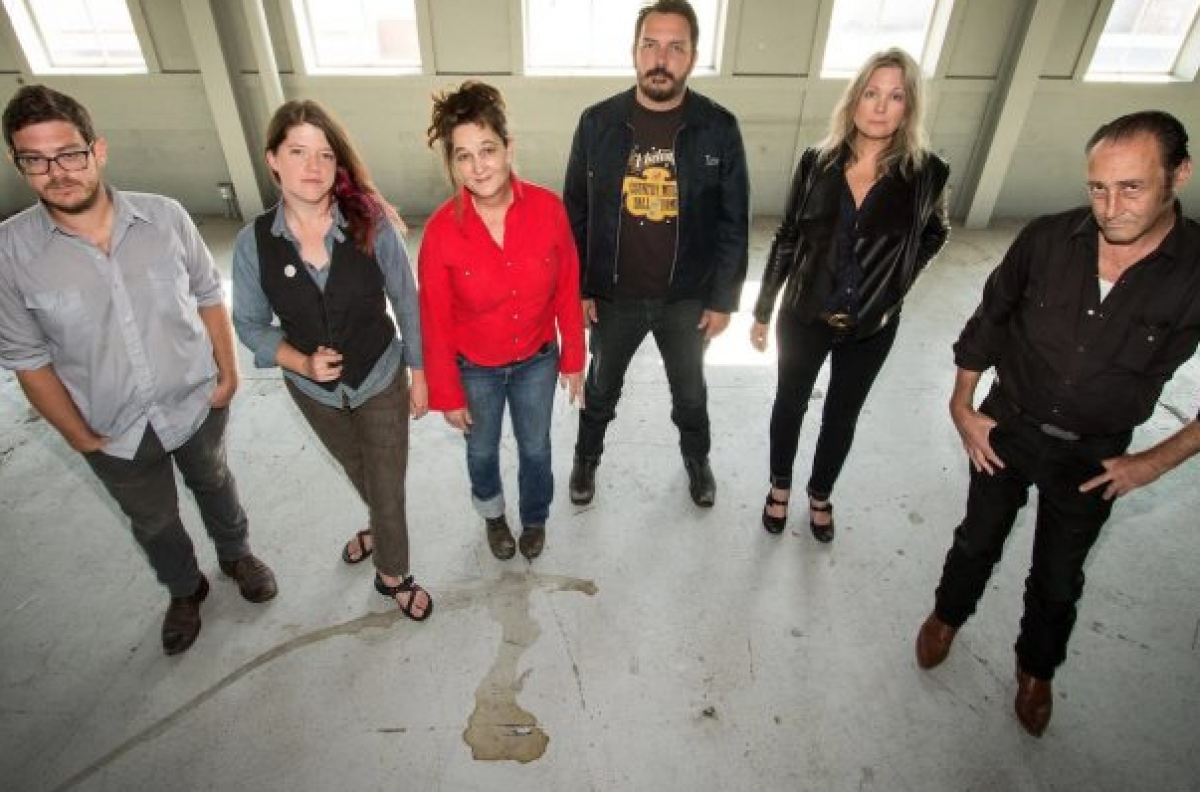
Freakwater ends a decade-long break with the moody and captivating Scheherazade
The wheels of Freakwater grind exceedingly slow, right up until they don’t. With the release of Scheherazade, the duo of Janet Bean and Catherine Irwin have notched three albums in 16 years, not a terrible average by some yardsticks.
“We weren’t making Chinese Democracy,” says Bean. “We will. The next one will be from the retirement facility.”
It’s not like Bean and Irwin exist in states of suspended animation waiting for inspiration to strike. Bean is a member of Eleventh Dream Day and the Horse’s Ha, and released her solo debut, Dragging Wonder Lake, in 2004, while Irwin has two solo albums under her belt, 2002’s Cut Yourself A Switch and 2012’s Little Heater, and moved into the visual arts as well. This has kept the pair busy while waiting for Freakwater’s edgy, atmospheric electric/acoustic folk to resurface.
The songs for Scheherazade, Freakwater’s first new album since 2005’s Thinking Of You and debut for Bloodshot, began to bubble in early 2014. Bean and Irwin convened in their hometown, Louisville, Ky. (Bean has called Chicago home for three decades), and worked up songs with violinist Anna Krippenstapel, then tested the live waters.
“The three of us played in the cellar of this restaurant in Louisville, just to see how they’d go over,” says Bean. “Then we practiced again, then we started recording.”
“We had six or seven days of recording, then we mixed it at the end of April,” says Irwin. “We didn’t spend a year in the studio.”
As the new Freakwater songs evolved—including “Bolshevik And Bollweevil,” with irresistible folk lyric, “Come on home if you can find it, because the farm is blown away”—with Krippenstapel and longtime bassist David Wayne Gay, so too did the idea of naming the album after Scheherazade, the mythical/historical wife of Persian king Shahryar, who spun the tales of One Thousand And One Nights to avoid her demise.
“The thing is, if you stop talking, you die,” says Irwin. “To me, that sums up both the beauty and the problem of Freakwater. It is true, in a way, that we probably wouldn’t be able to do this anymore if we did stop. The idea that you have a story and you keep it going and if you stop, you’ll be executed, that is the story of a band, in a way. It seems like a relevant idea, certainly based on our between-song banter style.”
“People yell at us, ‘Shut up, just play a song,’” says Bean. “I can’t, I’ll die!”
Considering their long hiatus and the number of musical/life activities that occupy their free time, it’s a wonder that Scheherazade, or even Freakwater itself, exists at all. Bean insists she and Irwin, like water searching for its level, will always find a way.
“Short of being hit by a bus,” she says. “We agree to shows, thinking, ‘We’ll be hit by a bus before that happens, so we don’t have worry about doing it.’ So, I think we figured if we survived, we’d make another record. Goals have never been one of our, uh, goals.”
“If we had a goal, we would have stopped a long ago,” says Irwin. “Not having goals is the reason we’re still doing this.”
—Brian Baker







